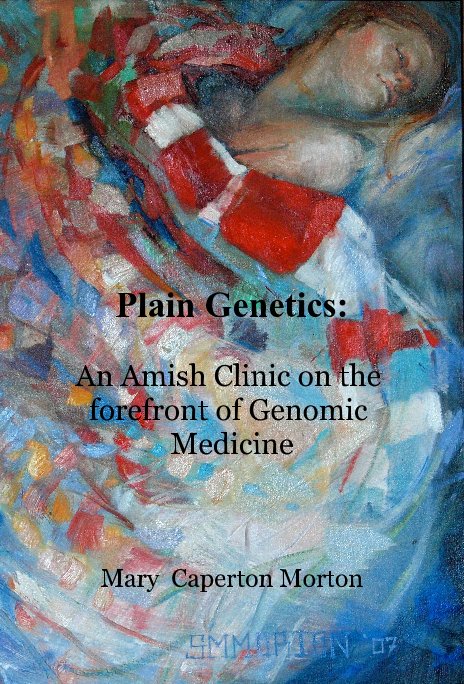Plain Genetics: An Amish Clinic on the forefront of Genomic Medicine
by Mary Caperton Morton
This is the price your customers see. Edit price list
About the Book
The Human Genome Project was supposed to be the lunar landing of my generation. By spelling out the 3.2 billion chemical letters that make up our DNA, we were going to gain new insight into how our genes both cause and prevent disease. Then, once the genetic origins of cancer, heart disease, diabetes and Alzheimer’s were understood, scientists would be able to delve into our genes and fix our faults using gene therapy, ridding mankind of disease forever. Considering that nearly every human disease has a genetic root, genomics-based medicine was promising the moon.
Not only was genomic medicine going to cure mankind, it was also going to cure our ailing healthcare system. By the 21st century, the days of familiar doctors, personalized care and affordable medicine seemed a distant memory. Modern healthcare had become a trillion dollar industry where insurance companies dictated which doctor you could see and what kind of treatment, if any, you could afford. In the big business of money-driven medicine, patient care came last. Genomic medicine, tailored to the unique genome of each individual, promised a return to patient-focused medicine and treatments tailored to the patient promised more efficient, more affordable healthcare.
Five years after all those promises, little progress has been made. The road to genetics-based medicine has been repeatedly blocked by a tangle of medical, ethical, and social-policy issues that threaten to keep genomics research stalled on the lab bench, far from patients. For example, media hype overlooked the fact that knowing the letters of the genome doesn’t tell you much about the genes themselves, where they are, what they do or how to fix them. Answers to such technically difficult medical problems are hard to come by, while answers to thorny ethical questions and complex social problems sometimes simply don’t exist.
Genomic medicine’s challenges are daunting, but a small medical clinic in Strasburg, Pennsylvania is overcoming them everyday. At this clinic, hype and politics are marginalized and genomics get put to practical use in everyday patient care. By operating under special circumstances, thanks to its special clientele, the Clinic For Special Children is one of the few places in the world where genomic medicine lives up to its big promises.
Not only was genomic medicine going to cure mankind, it was also going to cure our ailing healthcare system. By the 21st century, the days of familiar doctors, personalized care and affordable medicine seemed a distant memory. Modern healthcare had become a trillion dollar industry where insurance companies dictated which doctor you could see and what kind of treatment, if any, you could afford. In the big business of money-driven medicine, patient care came last. Genomic medicine, tailored to the unique genome of each individual, promised a return to patient-focused medicine and treatments tailored to the patient promised more efficient, more affordable healthcare.
Five years after all those promises, little progress has been made. The road to genetics-based medicine has been repeatedly blocked by a tangle of medical, ethical, and social-policy issues that threaten to keep genomics research stalled on the lab bench, far from patients. For example, media hype overlooked the fact that knowing the letters of the genome doesn’t tell you much about the genes themselves, where they are, what they do or how to fix them. Answers to such technically difficult medical problems are hard to come by, while answers to thorny ethical questions and complex social problems sometimes simply don’t exist.
Genomic medicine’s challenges are daunting, but a small medical clinic in Strasburg, Pennsylvania is overcoming them everyday. At this clinic, hype and politics are marginalized and genomics get put to practical use in everyday patient care. By operating under special circumstances, thanks to its special clientele, the Clinic For Special Children is one of the few places in the world where genomic medicine lives up to its big promises.
Features & Details
- Primary Category: Medicine & Science
-
Project Option: 6×9 in, 15×23 cm
# of Pages: 46 - Publish Date: Sep 22, 2010
See More
About the Creator
Mary Caperton Morton is a freelance science and travel writer with degrees in biology and geology and a master’s in science writing. A regular contributor to EARTH magazine, where her favorite beat is the Travels in Geology column, she has also written for High Country News, Climbing, Smithsonian and the anthology Best Women's Travel Writing 2010. Mary is currently working on a collection of stories about caretaking an off-the-grid solar Earthship in rural New Mexico. When she’s not at the computer she can usually be found outside, hiking, climbing mountains and taking photographs.


